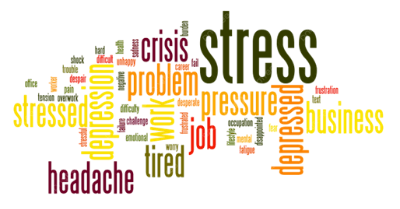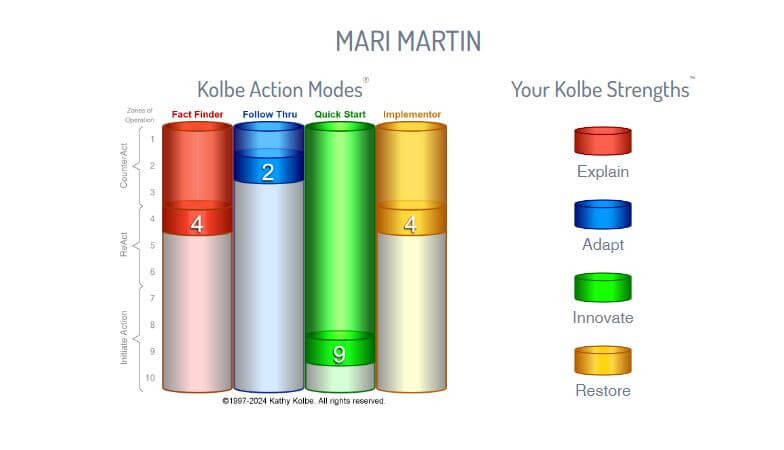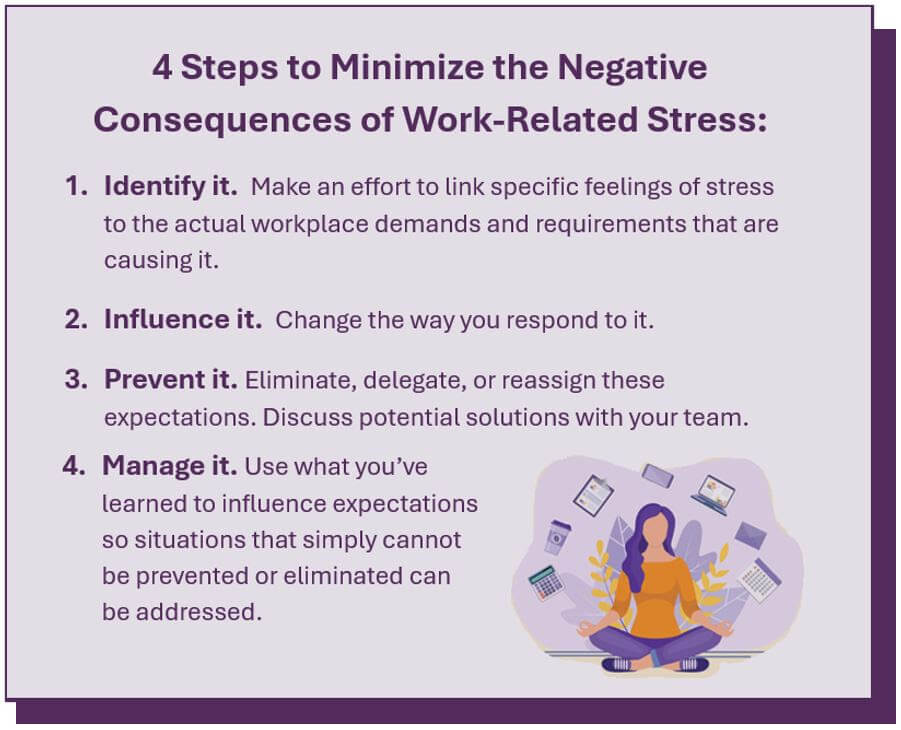When someone sneezes near us we move away. We don’t want their germs. But a sneeze is an important protection mechanism. It clears irritants from your nose and throat, resetting the nasal environment and removing potential damaging microbes. Sneezing is the body’s way of keeping things clean.
What if we had something like a sneeze to recognize, detect, and clear stress?
It would be a game changer—a life changer. According to the World Health Organization, “Work-related stress is the response people may have when presented with work demands and pressures that are not matched to their knowledge and abilities, and which challenge their ability to cope.” Being able to detect our own stress triggers could serve just like a sneeze to protect our body from the life damaging results of chronic stress.

Stress occurs in a wide range of work circumstances but is often made worse when employees feel they have little support from supervisors and colleagues, as well as little control over work processes. There is often confusion between pressure or challenge and stress, and sometimes this is used to excuse bad management practice.
Feeling the Pressure: The Progression of Stress
Pressure in the workplace is unavoidable due to the demands of the contemporary work environment. Pressure perceived as acceptable by an individual may even keep them alert, motivated, and able to work and learn, depending on their available resources and personal characteristics.
However, when that pressure becomes excessive or otherwise unmanageable it leads to stress. Stress can damage an employee’s health and undermine the overall potential for business performance and success.

“Stress is difficult for scientists to define,” reports the American Institute of Stress, “because it is a subjective sensation associated with varied symptoms and differs for each of us.” The most commonly accepted definition of stress- attributed to Richard S. Lazarus- is, “a condition or feeling experienced when a person perceives that demands exceed the personal and social resources the individual is able to mobilize.”

Stress Disrupts Every Bodily System
Another recognized expert in the field, Hans Selye, M.D. also considers stress a, “a nonspecific response of the body to a demand.” One thing is certain–the long-term effects of stress are alarming. Stress causes a disruption to nearly every system in the body including our immune, digestive, and reproductive systems. It increases blood pressure, leading to a higher risk of heart attack and stroke. Multiple 2023 studies indicated ongoing stress rapidly increases the biological aging process; one indicated that consistent high levels of stress had the same aging effects as smoking. Stress can accumulate, causing inflammation and wearing on the immune system.
Think about a magic show. A magician wants the audience to believe that people actually disappear. Intellectually we know that is impossible. But the magician uses our weaknesses to make us believe it happens. She uses props, slight of hand, misdirection, and optical illusions to direct our attention elsewhere at a critical moment. It is the same for us when it comes to stress. When we haven’t identified our own nonspecific response to a demand, when we don’t know the demands that exceed our personal and social resources, or when we simply don’t know which demands trigger stress for us, we are going to deal with excess stress and it’s aftermath to the detriment of our long-term health. If you know how the magician makes someone seemingly disappear before the trick is performed, the illusion loses it’s power. The same applies to stress. When we know our own weaknesses, then the “magic” doesn’t work.
Identify Your Unique Stressors Using the Kolbe A™ Index

According to the Kolbe A™ Index, my Kolbe MO is 4 2 9 4. My stress will likely come when I have to: create order, organize, structure, systematize, plan, coordinate, arrange, schedule and complete. That is because I have less energy in the Follow Thru instinct (2 on a scale of 1 to 10) to be motivated and energized by those types of tasks and assignments. The vocabulary above is a short list by design. It makes it easy to memorize and remember the work-related activities that trigger stress for me.
Reduce Stress by Modifying Your Response
Over 34 years I have done rigorous work to expand on those words and identify specific and key stressors for me. Initially, I may put these activities off, procrastinate, or not fully engage with something on my ‘to do’ list. That’s not respectful if other team members are waiting on me to contribute my part to the whole assignment. At a macro level, these demands can trigger an all-out response of fear, and fear is immobilizing. One thing I understand is that I experience fear when I am not prepared. Because I know this, the stress’s magic doesn’t work. I have learned how to influence the demand and find a solution—a way to respond to the expectation and figure out a workaround. The key to reducing stress is to change how you respond to it.

Identify, Prevent, and Manage the Damaging Microbes in Your Life
Many of you know that my husband Chris has had major surgery to remove cancer in his throat. He lives and thrives with a permanent tracheostomy—meaning, he breathes through his throat. His nose has no active use anymore. But the miracle of all miracles is that he still sneezes. How that works is beyond me, as the sneezing sensation comes from his throat. When he sneezes, I smile and pass him a Kleenex. Each sneeze clears out the damaging microbes and keeps his lungs clean. Identify, influence, prevent, and manage the damaging microbes in your life to keep it clear of the harmful consequences of stress.
At PSG, this is one of our areas of expertise in helping you master the art of working together. We are all about the power of knowing. We welcome the opportunity to work with individuals and full teams to facilitate specific discussions that lead to practical and repeatable solutions.

…
Mari D. Martin is the founding principal of Performance Strategies Group (PSG), a communications consulting firm focused on helping you master the art of working together. She is a Kolbe Certified™ Consultant of 33 years and author of Come Home Alive–Knowing How to Work Together to Make it Through the Crisis of Cancer.
